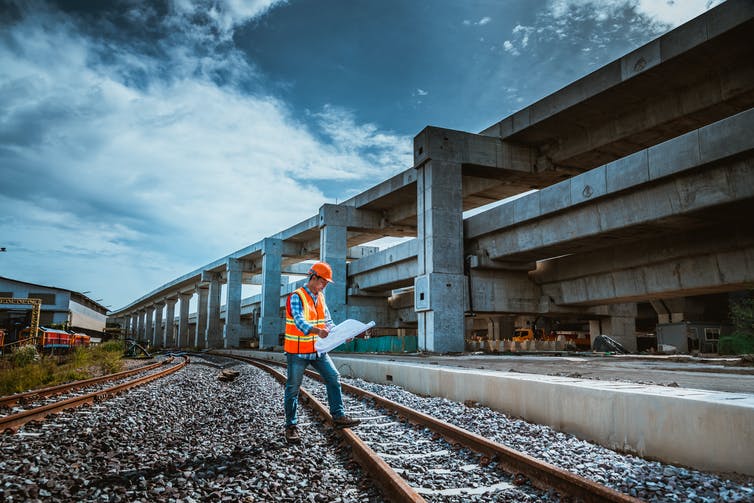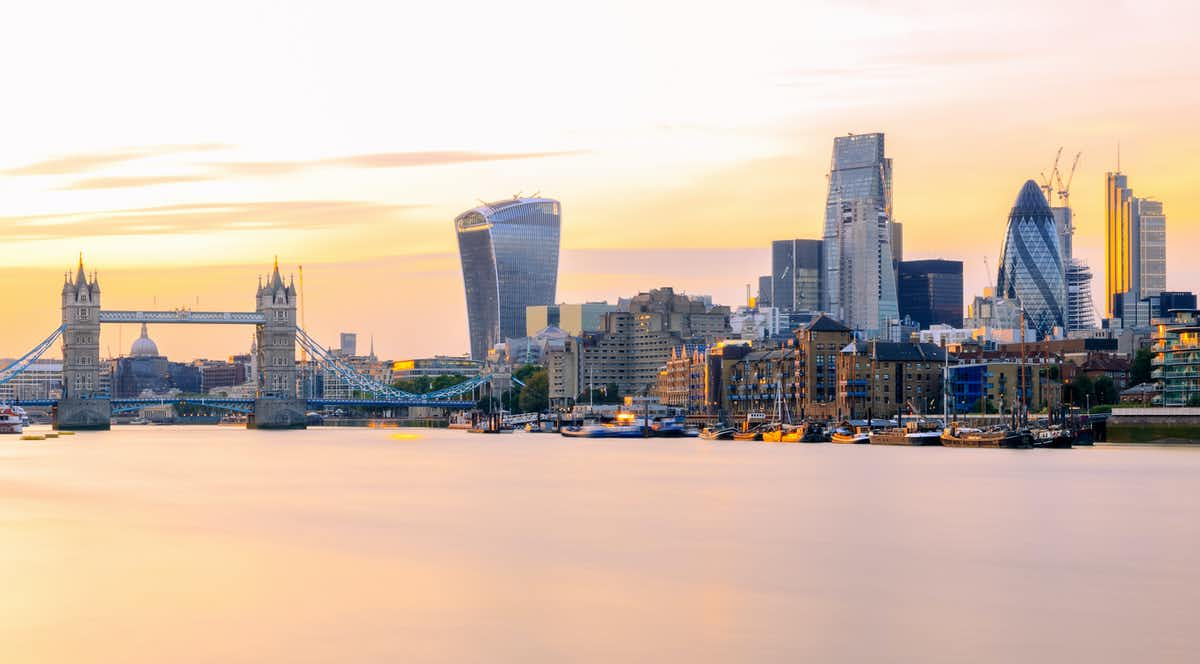‘Levelling up’ the UK is a golden opportunity for climate action – but the government is failing
Posted on 10 Mar 2022 Categories: Blog, Climate crisis, Cross-posts, New economic models
by Jacob Ainscough

Economists no longer talk of decarbonisation as a cost; climate action is now widely seen as an investment. Like any investment in new economic sectors, money spent is expected to be more than made back by the benefits it brings. Since the 1970s, one sector of the UK economy which has particularly benefited from government support is finance. The UK finance sector has grown to be the largest of any in the G7 relative to the rest of the national economy. This was accompanied by the fastest decline in manufacturing as a percentage of GDP among its economic peers. Nurturing the financial centre of the City of London at the expense of the wider economy has contributed to the gulf in economic activity between the capital and the rest of the country. Into this scenario came the government’s recent white paper for “levelling-up” the UK’s regions – an effort to ensure that it makes “good business sense for the private sector to invest in areas that have for too long felt left behind”, according to the Prime Minister’s foreword.
Taking climate change seriously offers the UK a way to do just that: diversifying the UK economy and in doing so, shifting the focus from London. But despite its rhetoric, the Conservative government is ignoring this historic opportunity.

Let’s consider one example. Replacing gas boilers with electric heat pumps and upgrading all home insulation in line with the recommendations of the government’s official climate change advisor (the Climate Change Committee) could create between 900,000 and 1.3 million jobs, dispersed across every village, town and city in the UK.
The stable geology and empty, well-explored oil reservoirs beneath the North Sea make for one of the best places in the world for long-term carbon storage. The UK could be a part of the global race to invest in this and other low-carbon industries like green steel, but it’s not.
Investing in low-carbon industries would allow regions to draw on their own unique advantages and find new growth models to replace lost industry. There are already fledgling examples. Cornwall is exploring its potential as a geothermal energy hub thanks to a geological endowment of hot granite.
With the right support, the UK’s declining steel industry could be retooled to outfit an expanding wind energy sector with low-carbon steel, allowing more places to follow the path of Humberside where the offshore wind boom has revived manufacturing.
Missed opportunities
Climate change didn’t even get a mention in the announcement accompanying the launch of the government’s levelling-up proposals. In the white paper itself, the transition to a net zero economy came second from bottom in a list of 16 priorities.
The result is that chances for regional investment are squandered. Take the UK steel industry. In a prior policy announcement the government promised to “consider the implications” of expert recommendations that steelmaking should be carbon-neutral by 2035. But no money will flow from the government’s own clean steel fund, announced in 2019, until 2023. Meanwhile, the UK steel industry is foundering.
The government could have delivered on its net zero agenda and levelling-up proposals simultaneously by bringing forward investment in a green steel manufacturing boom. This would enrich the regions of Wales and northern England where Britain’s steel industry was first forged.

The levelling-up white paper instead lays out a set of “missions” for addressing regional inequalities which include increasing pay and productivity across the country, ensuring 200,000 more people are completing high-quality skills training annually, and making the connectivity of transport systems nationwide more similar to London by 2030.
The funding for these missions encompasses a dizzying array of separate pots of money, some of which had already been announced: £26 billion in capital investment for the net zero transition, £5 billion for buses and active travel, and £3.8 billion for skills training were all in the 2021 Autumn Budget. Failing to supplement this funding leaves both the UK’s climate targets and levelling-up agenda in doubt.
The most promising part of the plan let regions apply for new devolved powers from central government. Around three-quarters of local authorities have declared climate emergencies and many have been working with residents to develop climate plans. Devolving more powers to let people decide what direction their regions should take makes sense. But the newly announced funding to support this devolution must be considered against over a decade of cuts to local authority budgets.
An alternative approach would have been to marry the government’s climate change responsibilities with the levelling-up agenda. Be they decarbonising home heating, becoming a world leader in green steel production or addressing emissions from UK agriculture, these objectives could have directed investment towards specific regions and structured support for education and skills.
Such a move would have helped reassure local authorities, private businesses and young people making decisions about further education and training that the government is firmly behind achieving net zero.
Re-orienting the UK’s economic model away from the current finance-centred model that benefits London at the expense of the rest of the country is a Herculean task. But yoking together a programme of radical climate action, regional development, and genuine devolution offers a blueprint for achieving it. The Conservatives have begun gesturing towards such a programme, but their levelling-up proposals show they have much further to go.
Jacob Ainscough is a Senior Research Associate in Environmental Governance, Lancaster University.
This article was originally published on The Conversation blog on the 11th February 2022.
Posted on 10 Mar 2022 Categories: Blog, Climate crisis, Cross-posts, New economic models
